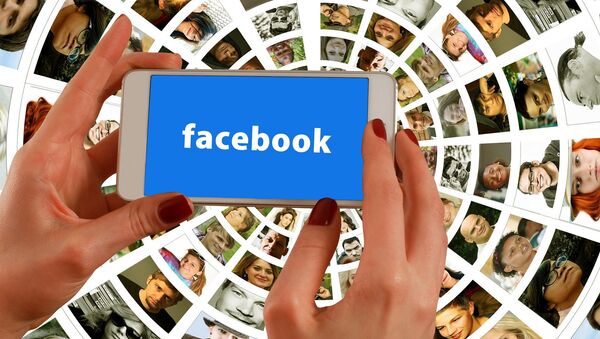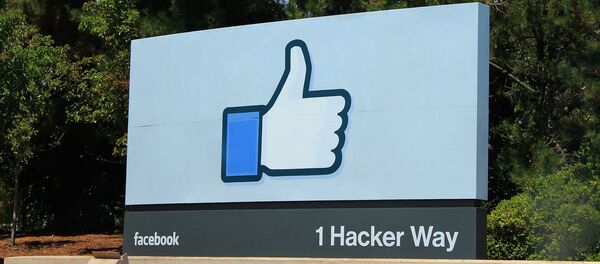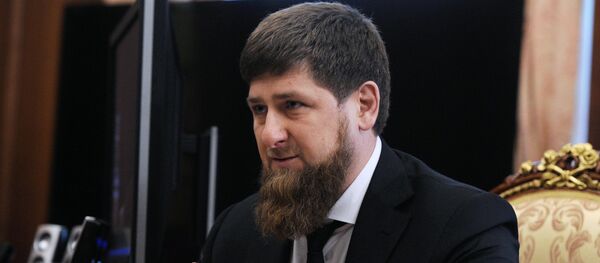On Radio Sputnik's Fault Lines, hosts Garland Nixon and Lee Stranahan spoke to Willis Krumholz, a fellow at military think tank Defense Priorities as well as a contributor at The Federalist, a right-wing news outlet. Krumholz authored an article on Thursday, "House Intel Committee Democrats Started The False ‘Russia On Facebook' Story," meant to debunk the narrative of Russian interference on social media.
"There's a lot of innuendo and rhetoric, and not a lot of facts and hard evidence, to back up this supposedly massive Russian presence on social media," said Krumholz. "It doesn't mean we shouldn't be concerned about other countries doing things like this, but if you actually look at the actual evidence, the hysteria is just that it doesn't add up to what we actually saw happen."
Stranahan asked if there was any hard evidence of Russian interference in the 2016 election via social media. "There might be some evidence or information that isn't publicly available, but from what is publicly available, no," said Krumholz. "Not only that, but even if the Kremlin was behind this stuff, the magnitude still matters."
Krumholz provided context for the scandal: "Facebook released these ads to the [US House and Senate] Intel Committees after what I would call ‘some pressure.' Once these ads were released to the Intel Committees, then the House Democratic Intel Committee people cherry-picked some ads that looked the most political. The problem is that not all these ran right before the election, not all these ran in swing states. The idea was that this ad campaign was so sophisticated that it must have had help from Trump's social media people. So right away the House Democrats started leaking that out to CNN, who were the first ones to say that these ads are sophisticated, that there was a far-reaching Russian effort to interfere in the election."
To evidence this, Krumholz said, CNN claimed that the ads were "geographically targeted at swing states — but again, the problem is that they weren't. The ones that were run in 2015, but they're saying there was geographic targeting of swing states. The rest of the media kind of picked up the story and then from there you have a parade of House Permanent Select Committee on Intelligence Democrats going to the media and explicitly saying, ‘How did Russia gain that sophistication? They gained that sophistication with help.'"
But far from being the smoking gun in the Russiagate camp's never-ending quest to implicate Trump and his acolytes of collusion, the advertisement narrative is full of gaping holes, according to Krumholz. "If I could just read off for my article, a couple of the facts: the 3,000 ads in question that were turned over by Facebook to the Intelligence Committees in the House and the Senate weren't sophisticated whatsoever. A lot of the ad views came after the election, about 25 percent of the ads were never seen by anybody. If you watch CBS or any mainstream news network covering these ads, they'll say 10 million people saw the ads — but they forget to say that only about 5 million saw the ads before the election."
"The vast majority of the ads didn't mention any voting or any specific politician or political party. They mostly covered stuff like Black Lives Matter or immigration, whether for or against. More ads ran in 2015 than in 2016 — so 5 million people saw the ads, but the way the media reports it, it sounds like they saw the ads in the homestretch of 2016, right before the election. In fact, they saw the ads in 2015."
"About a quarter of the ads were geographically targeted, which is relatively easy to do on Facebook. Most of those didn't target battleground states: to give an example, this is from a statement from Senator Richard Burr. His office said that there's about five times more ads that were targeted at Maryland (a firmly Democrat-voting state) than Wisconsin (a crucial swing state): 262 to 55. Of the 55, 35 ran prior to the Wisconsin primary — before there was even a clear Republican candidate, of course. Not one of those 55 Wisconsin ads mention Trump from name."
The numbers are made further moot when the scale of the Russia-linked advertisements is put into perspective. "Forty-six thousand dollars total were spent on Russian ads during the election, that's the bottom line number. Clinton and Trump combined spent about $100 million on Facebook alone. These ads before the election were $46,000, if the media just somehow mentioned that in any of their coverage, that would really provide some color to a lot of people's understanding of this."
"But I'd say 99 percent of the press coverage on this has been totally devoid of any kind of critical thinking now. They don't ask any questions, not even hard questions, but just easy questions, that are kind of screaming at you if you just critically assess the facts."





